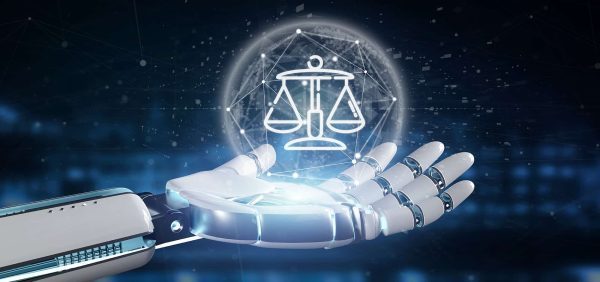Artificial Intelligence (AI) is rapidly transforming various industries,
and the legal profession is no exception. As AI technologies continue to
evolve, it is clear that the future of law will be profoundly influenced by
these innovations. AI promises to enhance operational efficiency, reduce costs,
and improve legal analysis, offering new opportunities for law firms and legal
professionals to work more effectively and deliver more innovative services.
1. Automation and Operational Efficiency
A primary application of AI in the legal field is automation. By
leveraging machine learning technologies, AI can streamline routine tasks such
as document review, contract analysis, legal research, and the drafting of
legal briefs. AI systems can process vast amounts of data more quickly and
accurately than human lawyers, thus improving overall productivity and
minimizing human error in legal procedures.
2. Legal Data Analysis and Predictive Analytics
AI excels in the analysis of large volumes of legal data,
including case precedents, statutes, and judicial rulings. This capability
enhances lawyers' ability to make informed, data-driven decisions. Predictive
analytics, powered by AI, can forecast case outcomes based on historical data
and trends, helping legal professionals develop more effective strategies,
assess the likelihood of success, and determine optimal approaches to
litigation or settlement.
3. Expanding Access to Justice
One of AI’s most significant contributions to the legal
profession is its potential to improve access to justice. AI-powered platforms
can offer affordable, preliminary legal advice to individuals who may not
otherwise have access to legal counsel. This is particularly beneficial for
underserved communities, enabling wider access to legal resources and ensuring
that individuals receive timely guidance, especially in straightforward or
routine legal matters.
4. Supporting Strategic Decision-Making
AI can assist lawyers in making better strategic decisions by
providing insights into case law, identifying patterns, and analyzing trends
within specific areas of law. With AI’s assistance, lawyers can more accurately
assess potential legal outcomes and refine their case strategies, which
ultimately enhances their ability to deliver optimal legal advice and
representation to clients.
5. Ethical Considerations and Challenges
While AI offers tremendous advantages, its integration into the
legal profession raises important ethical and practical concerns. The handling
of sensitive personal and client data must adhere to strict privacy and
confidentiality standards. Additionally, AI systems must be used responsibly to
ensure that they support, rather than replace, human judgment in legal
decision-making. It is essential that lawyers retain control over significant
legal decisions and use AI as a tool to inform their expertise, rather than
relying on it exclusively.
6. The Evolving Role of Lawyers
The role of the lawyer will continue to evolve as AI becomes
more deeply integrated into legal practice. Lawyers will increasingly shift
from performing routine tasks, such as document review, to focusing on
higher-value activities like client counseling, strategic planning, and complex
legal problem-solving. To stay competitive, legal professionals will need to
develop expertise in using AI tools and incorporating them into their workflows
while maintaining the human touch necessary for ethical legal practice.
Conclusion
The future of the legal profession will undoubtedly be shaped by
AI. With its ability to enhance efficiency, improve data analysis, and expand
access to legal services, AI holds the potential to transform how law is
practiced. However, it is crucial to balance the use of AI with the ethical and
professional standards that define the legal field. By ensuring that AI is used
as a supportive tool for legal professionals, rather than a replacement, the
legal industry can maximize its benefits while preserving the essential role of
human judgment in legal practice.
 English
English
 العربية
العربية



Add New Comment